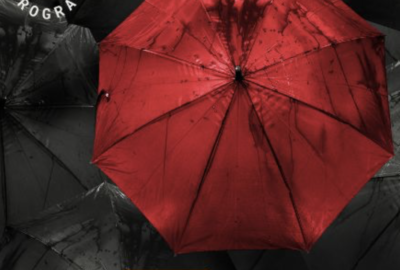Articles, Interviews
Oregon’s Stripper Lobby: Legislators Ask Exotic Dancers for Help With Strip Club Bill – Daily Beast
Oregon lobbyists are inviting exotic dancers to write their own labor legislation.
Only in Portland.
The rainy Northwest city not only brags of having more strip clubs per capita than any other place in the U.S., its booming adult entertainment industry has gone hipster.
According to the Strip Club Guide released this summer by Portland’s alt-weekly Willamette Week, “Portland’s strip clubs are Portlandy: fueled by indie rock, local beer, Oregon spirits and self-sure dancers who move to their own beat and will have any mook who tries to fondle them tossed into the street without a second thought.”
It makes sense that the same city that birthed the Suicide Girls phenomenon would also be populated with alt-strippers; many of Portland’s favorite entertainers are tattooed head-to-toe, with candy colored hair and Converse or ballet slippers onstage in place of the traditional clear plastic stilettos. Some dance sarcastically to Lonely Island’s “Dick in a Box,” while others have been known to wear vampire fangs while performing pole acrobatics worthy of Cirque Du Soleil.
The clubs themselves are odd too: whether it’s Devil’s Point allowing patrons to sing onstage with dancers at ‘Stripperoke’ or ladies disrobing to tunes blaring from a vintage jukebox on Mary’s Club’s Twin Peaks-like red lit stage, most tourists have never seen anything quite like the inside of a Portland strip club.
Now, as The Daily Beast has exclusively learned, Portland’s alternative approach to the sex industry is being taken all the way to the state legislature. In a historically unprecedented move, strip-club dancers are working in tandem with lobbyists, legislators, and social workers to draft a new set of industry regulations slated to hit the House floor for a vote in the February 2015 legislative session.
Though the policy itself is still being drafted, the effort has already piqued the interest of legislators in the judiciary and labor committees.
“I am pleased that the National Association of Social Workers is bringing up the important issue of workplace protections for exotic dancers,” State Representative Margaret Doherty (D-OR), who chairs the House Business and Labor Committee, told The Daily Beast, “Everyone deserves safety and fairness in their workplace.”
Generally, laws that regulate strip clubs and other sex industry businesses are handed down from the top by legislators, with little input from the people most directly affected by regulations. Whether because of stigmas related to stripping and sex work, lack of legislative access to worker input, or a prevailing misconception that most strippers and sex workers are victims of trafficking, there are very few, if any, legislative precedents that show adult entertainment professionals actually being asked to weigh in.
That doesn’t mean dancers and sex workers haven’t banded together in the past to fight legislation they found disagreeable or absurd. In 2007, an Ohio group called Dancers for Democracy successfully shot down a Republican-backed bill that would have restricted the hours of operation and other standards at the state’s strip clubs. And in 2013, Texas dancers spoke out against a bill that would have required them to display licenses with their real names while working.
In recent years, exotic dancers across the U.S. have successfully formed unions, won back wages in multi-million-dollar lawsuits, and formed labor associations that offer everything from legal assistance to stripper-friendly tax preparation. But strippers writing legislation? That’s new, say advocates and lobbyists alike.
“Sex workers, maybe for the first time, have been invited at the policy-making table,” said Stephanie Wahab, associate professor at Portland State University’s school of social work. “Which is crucial. I think that dancers and sex workers need to be involved in policy decisions. Dancers are the experts on their working conditions. It’s not people like me who study it from the outside.”
When the Oregon chapter of National Association of Social Workers (NASW) decided this April that they wanted to pursue policy that would improve working conditions for the state’s strippers, they notified their contracted lobby firm Pac/West. Delmar Stone, executive director of NASW’s Oregon chapter, told The Daily Beast there are four strip clubs very close to his home. “We’re immersed in it here in Portland. You hear about the negatives in the sex industry. But the fact of the matter is, there are people using those services and there are people providing them willingly,” Stone said, “There’s a myth that everyone in the sex industry is a victim and that’s not true. There are many victims, but not everyone is one.”
Both NASW and the lobbyists from Pac/West agreed that they would need to consult with local dancers in order to find out about the real issues in the industry. But Portland doesn’t have a worker’s association for dancers, so the lobby contacted Wahab, who agreed to help put together a panel of dancers on the condition that they get to participate in the legislative process.
On September 4, a panel met for the first time. There were only three Portland strippers at the meeting, along with Wahab and two Pac/West lobbyists, Caleb Hayes and Courtney Johnston.
“I think a lot of girls are actually kind of afraid to get involved because they are worried their bosses will find out and fire them. I want girls to know they can attend the meeting and have input without being named or outed,” Portland stripper Elle Stanger, 28, told The Daily Beast. Stanger was one of the three dancers that attended the first panel, and her monthly column in the industry magazine Exotic gives her a unique vantage point on the city’s club scene.
Each issue of Exotic contains a map of Portland-area adult businesses. At any given time, there are around 50 strip clubs listed, along with another 50 related businesses like video stores, peep shows, and ‘adult lingerie modeling’ shops, locally known as ‘jack shacks.’
While it’s difficult to keep track of adult businesses that tend to open and close frequently, it seems no one has ever bothered to try and take a census of how many workers there are in Portland’s strip club industry. The city’s population of strip club workers—from dancers to DJ’s, cooks, bouncers, and servers—is constantly shifting and likely in the tens of thousands.
A Portland woman who dances by the name of ‘Sharky’ (not her real name), and who attended the first legislative panel, told The Daily Beast that she has worked at around 30 clubs in Oregon since starting a stripping career five years ago. “It became kind of a hobby after a while because I became curious about how different they were,” said Sharky. “You go into one club and you’re used to selling no-contact dances, and then you go and work at another club and people are giving hand jobs in the back. And they don’t explain that, you just kind of find out.”
The lobbyists were shocked when Sharky told them that only half of the clubs she’d worked at actually bothered to ask for her ID. Most of Portland’s well-known strip clubs, she said, are good about carding girls and even having new hires fill out contracts and other paperwork. But from club to club, there was no consistency.
“One club I worked at, Sunset Strip, they caught a 15-year-old girl trying to audition,” Sharky recalled. “She had a fake ID and they ran it and found out. But she’d already been dancing at clubs all over town and there were even missing persons posters in the dressing rooms.”
The management at that club called the police, Sharky said. But it wasn’t the first or last time an underage girl was discovered in an Oregon strip club. Just this September, a manager at suburban Beaverton club Star Cabaret pled guilty to pimping a 13-year-old dancer who was forced to perform sex acts in the champagne rooms there. The manager, Steven Toth, testified that he split the profits from the girl’s abuse with her pimp, Victor Moreno-Hernadez. Both men went to prison, but Stars Cabaret is still open.
But Stanger stressed that she doesn’t want the legislative effort to become a witch hunt. She said more dancers were expected to attend the next meeting, and she hopes they can agree on standards for regulation that will protect worker’s rights without increasing stigma or hurting business for Portland’s smaller mom-and-pop strip clubs.
“I think if you give employee status to strippers and force clubs to pay minimum wage, it will close half the clubs in town,” Stanger said, “A lot of these places aren’t incredible lucrative, they’re serving happy-hour specials to get customers.”
In Oregon, as in most states, strippers are misclassified as independent contractors. Not only do dancers not get an hourly wage, they are usually forced to pay ‘stage fees’ to work each shift. But the state’s Bureau of Labor and Industries (BOLI) already determined through three previous cases that most dancers are, in fact, employees according to state law.
BOLI Communications Director Charlie Burr told The Daily Beast that Portland clubs Acropolis, Jiggles, Babe’s Cabaret, and Great Alaskan Bush Co. were all found guilty of misclassifying dancers and were forced to pay back wages in three separate rulings in the 1990’s.
“If a dancer files a wage claim with our wage and hour division, the agency will open an investigation to determine employment status and whether additional wages are owed,” said Burr.
At the policy table, the discussion of employee status for strippers quickly became complicated by the fact that dancers are essentially already employees under the law. In short, you can’t make something that’s illegal more illegal.
In addition, many dancers don’t necessarily want that legal employee status enforced. Even though Portland clubs are ostensibly breaking the law by not paying hourly wages to dancers, the dancers from the panel said that in some ways they preferred the flexibility and under-the-table aspects of being misclassified as contractors.
Hayes told The Daily Beast the panel discussed the option of hitting clubs with fines for misclassifying workers. But they realized it would be tough to do so if dancers themselves weren’t behind the idea. Besides, the city currently has no real body of oversight for strip clubs that would enforce a system of fines.
Instead, the lobbyists are looking towards the concept of licensing dancers, as well as ways to regulate health and safety standards at clubs where dirty stages sometimes cause MRSA breakouts and where shoddy construction can subject a class of workers that mostly lacks healthcare access to unnecessary injuries.
Getting a license to strip could look similar to existing licensure programs that Oregon runs for food handlers and alcohol servers, both of whom have to take a test that goes over legal and safety concerns for the service industry.
“Girls need to know how they’ll ruin their knees dancing, how to negotiate with a drunk person who refuses to pay you,” Stanger said. She added that she thinks her club, the tattooed stripster mecca Lucky Devil Lounge, is one of the best, where dancers are generally treated with respect by management. But not every dancer in Portland is so, well, lucky.
Sharky told The Daily Beast that she’s made as much as $400 in a shift, but often makes as little as $40—nowhere near the state’s minimum wage of nine dollars an hour.
“I hear from girls who say things like ‘I made $30 yesterday and worked for nine hours,’” Sharky said. “Everyone assumes that dancers make so much money. But we don’t have a strong economy, and there are so many clubs. There’s not a lot of people spending money.”
Licensure for exotic dancers already exists in other cities, such as Las Vegas. But licensing poses problems in general, according to New York’s Rachel Aimee of stripper’s rights group We Are Dancers.
“One of the great things about the stripping industry is that, if you need quick cash, you can audition, get hired, work that night, and pay your bills the next day,” Aimee told The Daily Beast, “If you have to get a license in order to start working, lots of women are going to choose to do other kinds of sex work instead of stripping because they need the money right away.”
Though the panel won’t finalize the bill until later in the year, everyone seemed to agree on one thing: if you’re going to work as a stripper, some sort of basic education that clarifies rules around touching, employee status, and other workplace protections is desperately needed.
“It’s like the wild, wild West. We’ve got all of these standards for employment in the United States. Oregon has one of the highest minimums wages in the country that our legislators worked hard for,” said Hayes, “But you step into one of these clubs and it’s lawless.”
The next legislative panel is October 22nd.
Originally published on TheDailyBeast.com



























Leave a reply